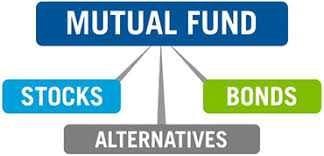3 min read

What are the benefits of mutual funds? How much do they cost? Which funds are right for you? What should you consider before investing?
These are just a few of the questions we’ll answer here.
Mutual funds are not bank deposits and are not guaranteed by any government agency.
They involve risks, including the potential loss of some or all of your investment. Past performance is not a solid sign of future performance.
However, it can help you evaluate a fund’s volatility and how it operates in various market circumstances.
WHY INVEST IN MUTUAL FUNDS?
Advantages
As an example, more than 100 million Americans use mutual funds to invest in their long-term goals. Here are some of the benefits they offer:
Professional management
When you invest in a mutual fund, your money is managed by full-time professionals. They research and select investments that are appropriate for the goals of each fund, and monitor the fund’s performance so they can change the portfolio when needed.
Diversification
Buying shares in a mutual fund make it comfortable for you to spread your investment over many different companies and industries. This may help to protect your assets over market volatility. Nevertheless, diversification doesn’t ensure a profit or defend against a loss.
Choice
Mutual funds give you a wide variety of choices to help meet your financial goals. You can invest for different objectives, at different levels of risk and in different kinds of securities.
Affordability
Mutual funds allow you to invest with a nearly small amount of money. Without a fund, it would usually demand a much considerable investment to build such a diversified portfolio.
Liquidity
You can ordinarily sell your shares at any moment and for any cause. Anyway, there may be exceptional moments when fund purchases are limited because of some extreme market requirements.
Automatic Reinvestment
Mutual funds give you the choice of reinvesting your yields and capital gains in new shares of the fund, without being indebted a sales charge.
A mutual fund is when a group of investors gives money to managers to invest in diversified securities. It can be stocks and bonds, for example. Because it’s group, every part-owner as the investor is, profits and loses an equivalent piece. The costs of the mutual fund are divided according to the cost proportion. And, because the funds are diversified among stocks or bonds and other securities, they are regularly lower risk than individual stocks or bonds.
To some investors, choosing individual securities to invest in and guide can be a risky task.
Access mutual funds. With benefits like added assurance and lower risk, mutual funds are one of the best investment opportunities to enter the market. But before you take your place into the group funds, you need to know the tricks.
Mutual funds are under the control of money managers.

They create portfolios for investment with a pool of money. Often, they have different kinds of investment goals. Some managers, like fixed-income managers, focus on generating low-risk, high pay-off investments for their funds, while long-term growth managers try to beat the Nasdaq or S&P 500 during the fiscal year.
Shares in a mutual fund are typically bought at the fund’s current net asset value (NAV, or sometimes NAVPS) per share. This figure is determined by dividing the total value of all the securities in the fund by the number of outstanding shares.
Mutual funds are actually investments like buying stock in companies.
Investors purchase shares into the mutual fund. That, in turn, provides them a right to the fund’s assets. Hence, the value of the mutual fund represents the value of its portfolio.
Let’s say you invest in a mutual fund. Well, not you but a manager will invest the public funds added to the fund. A manager will invest them in several securities, for example in stocks and bonds.
The manager is ordinarily selected by a board of directors and is frequently an owner of the part in the fund.
Such a fund manager will pick analysts to help in making investment decisions. Majority of funds will engage some accountant who’s task is to measure the net asset value of the fund every day. That will define the price of the share in the fund.
Most mutual funds also have compliance officers who keep up-to-date on regulations.
When investors purchase into a mutual fund, their money is managed by the fund manager. Such professionalist invests that money in different assets with specific intentions for risk and returns in judgment: like long-term increase or fixed-profit.
Some funds may be more dangerous than others, that’s true. But usually, the composition of a mutual fund manages risks well-known low.
Mutual funds only trade once daily and are often part of a 401(k) or an individual retirement account, IRA.
The biggest benefit of mutual funds is, they are handled by someone other than the individual investor. You just have to put the hard decisions in an expert’s hands. The fund manager is more prepared for reasonably allocating our funds than we could do it by ourselves.
The mutual funds regularly submit several portfolios with a group supply of money. So the personal risk to all investors is lessened. So we can say that mutual funds are honestly low-risk and high-reward.
But, mutual funds include some fees in the kind of annual fees and stockholder fees.
Annual running fees usually are 1%-3% of the annual funds under control. The stockholder fees are in line with the commissions paid by when buy or sell funds.
Besides that, an obvious lack of mutual funds is that you don’t have constant control of stocks you’re investing in. Hence, for some traders, this may produce some difficulty, particularly if your fund begins dropping.
Don’t waste your money!




Leave a Reply